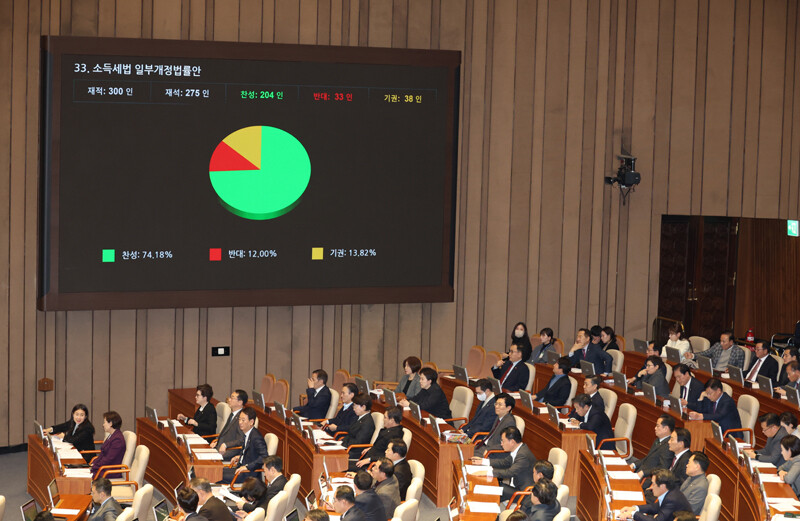
Seoul, South Korea – South Korea’s parliament has blocked a government proposal to reduce inheritance and gift taxes, dealing a blow to the administration’s efforts to stimulate the economy. The decision comes amid a broader political stalemate and growing concerns over wealth inequality.
The rejected bill would have lowered the top inheritance and gift tax rate from 50% to 40% and increased the tax-free gift amount for children. However, opposition lawmakers argued that the proposed tax cuts would primarily benefit the wealthy.
While the inheritance tax cuts were rejected, the parliament did approve the repeal of the planned financial investment income tax, which was set to be imposed on income from stocks, bonds, and other financial assets. The government had delayed the implementation of this tax due to concerns about its impact on the stock market. Additionally, the taxation of cryptocurrencies has been postponed until 2027.
The government had argued that reducing inheritance taxes would boost economic activity and encourage investment. However, critics contended that such tax cuts would primarily benefit large conglomerates and wealthy individuals.
The failure to pass the inheritance tax cuts is the latest setback for the government's economic policies. Other proposed tax cuts and incentives for businesses have also been rejected or delayed due to political opposition.
[Copyright (c) Global Economic Times. All Rights Reserved.]




























